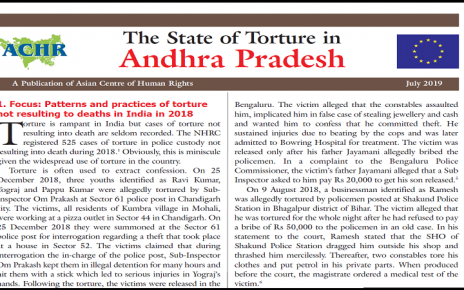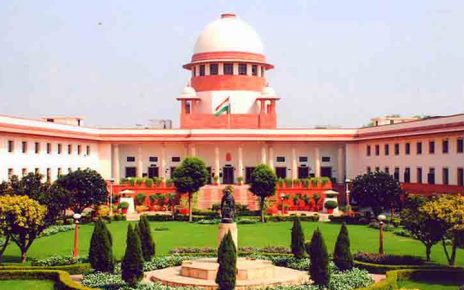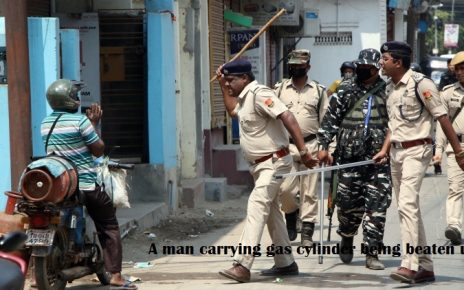Nigeria had been a signatory to the UN Convention against Torture and Other Cruel Inhuman or Degrading Treatment or Punishment (UNCAT) since 28 July 1998 and it ratified the convention on 28 July 2001, in less than three years of becoming a signatory to the instrument. Nigeria accepted the Inquiry Procedure provided under Article 20 of the Convention. It also ratified the Optional Protocol to the Convention against Torture and Other Cruel, Inhuman or Degrading Treatment or Punishment (OPCAT) on 27 July 2009.[1] In April 2014, the United Nations Subcommittee on Prevention of Torture carried out a high level advisory visit to the country to hold talks with the authorities in order to assist them in the implementation of the OPCAT.[2]
Nigeria, however, has not yet submitted any report before the Committee Against Torture (CAT) either under the CAT or OPCAT although its initial report was due on 28 June 2002.[3]
Legal framework for prohibition of torture and cruel, inhuman or degrading treatment or punishment
Torture and other ill-treatment are absolutely prohibited, at all times, by international human rights law, including the International Covenant on Civil and Political Rights (ICCPR) and the CAT and Nigeria is a party to both conventions. Acts of torture and certain types of other ill-treatment are crimes under international law. The ratification of the CAT and the ICCPR had created legal and political obligations on the Republic of Nigeria to comply with and implement the provisions of the Convention at the domestic level. The Nigerian Constitution also prohibits torture and other inhuman or degrading treatment.
The 1999 Constitution sought to provide a framework to prohibit torture by providing “no person shall be subject to torture or to inhuman or degrading treatment” under Section 34 (1)(a).[4]
Torture: A common tool for criminal investigation across Nigeria
The 1999 Constitution did not explicitly state that the freedom from torture, cruel and inhuman treatment is a non-derogable right. Until enactment of the Anti Torture Act, 2017 on 29 December 2017, there was no law whose sole objective is the prohibition and punishment of torture and other forms of cruel, inhuman or degrading treatment in Nigeria.
In its report titled, “Welcome to hell fire” Torture and other ill-treatment in Nigeria, published in September 2014, global human rights watchdog Amnesty International found that torture and other ill-treatment were routine practice in criminal investigations across Nigeria. Suspects in police and military custody across the country have been subjected to torture as punishment or to extract ‘confessions’ as a shortcut to “solve” cases – particularly armed robbery and murder.[5]
The report stated that many police sections in various states, including the Special Anti-Robbery Squad (SARS) and Criminal Investigation Division (CID), have “torture chambers”: special rooms where suspects are tortured while being interrogated. Often known by different names like the “temple” or the “theatre”, such chambers are sometimes under the charge of an officer known informally as “O/C Torture” (Officer in Charge of Torture).[6]
The National Human Rights Commission of Nigeria registered a total of 165,543 cases across the country in 2017 under the heading “Civil and Political Rights” which included unlawful arrest & detention, cruel, inhuman and degrading treatment, torture, extrajudicial killing, appeal for mercy, enforced disappearances, participation in political affairs, freedom of religion, thought and conscience, threat to life etc. Of these, 14,733 cases were registered under the sub-heading ‘Torture’ and 20,029 cases were registered under the sub-heading ‘cruel, inhuman and degrading treatment’.[7]
Anti Torture Act – a platform to realize the constitutional prohibition on torture
The Anti Torture Act, 2017 provides a platform to apply the prohibition on torture or inhuman or degrading treatment as laid down in Section 34(1)(a) of the 1999 Constitution. The law fills the legislative gaps by explicitly making the right to freedom from torture, cruel, inhuman and degrading treatment a non-derogable right, criminalising torture and protecting victims and witnesses of torture.
The Anti-Torture Act 2017 is a very concise legislation. This Act makes comprehensive provisions for penalising the acts of torture and other cruel, inhuman and degrading treatment or punishment, and prescribes penalties for the commission of such acts.
Definition of acts of torture
Section 2 of the Anti Torture Act, 2017 defines what amounts to torture. Sub-section (1) states that torture is deemed committed when an act by which pain and suffering, whether physical or mental, is intentionally inflicted on a person to – (a) obtain information or confession from him or a third person; (b) punish him for an act he or a third person has committed or suspected of having committed; or (c) intimidate or coerce him or third person for any reason based on discrimination of any kind. The provision however provides that torture does not include pain or suffering inflicted in compliance with lawful sanctions.
Sub-section (2) provides that torture includes (a) physical torture or such cruel, inhuman or degrading treatment which – causes pain, exhaustion, disability or dysfunction of one or more parts of the body and (b) mental or psychological torture, which is understood as referring to such cruel, inhuman or degrading treatment calculated to affect or confuse the mind or undermine a person’s dignity and morale.
The sub-section provides an exhaustive list of acts that constitute torture or cruel, inhuman or degrading treatment. Some examples of physical and mental and psychological torture[8] are (i) systematic beatings, head-banging, punching, kicking, striking with rifle butts and jumping on the stomach; (ii) food deprivation or forcible feeding with spoiled food, animal or human excreta or other food not normally eaten; (iii) electric shocks; (iv) cigarette burning, burning by electric heated rods, hot oil, acid, by the rubbing of pepper or other chemical substances on mucous membranes, or acids or spices directly on the wounds; (v) the submersion of head in water or water polluted with excrement, urine, vomit or blood; (vi) blindfolding; (vii) threatening a person or such persons related or known to him with bodily harm, execution or other wrongful acts; (viii) confinement in solitary cells put up in public places against their will or without prejudice to their security; (ix) prolonged interrogation to deny normal length of sleep or rest and (x) causing unscheduled transfer of a person from one place to another, creating the belief that he shall be summarily executed etc.
Duty of Government
Section 1 of the Act imposes an obligation on government to ensure that integrity and safety of all persons, including suspects, detainees and prisoners are respected at all times and that no person under investigation or held in custody is subjected to any form of physical/mental torture. The provision also creates a duty on the Government to adhere to domestic and international standards on absolute condemnation and prohibition of torture.
No justification for torture
Section 3 is the stand out provision of the Anti Torture Act, 2017. It makes freedom from torture a non-derogable right. Sub-section (1) states clearly no exceptional circumstances whatsoever, a state of war or a threat of war, internal political instability or any other public emergency, may be invoked as a justification for torture. Sub-section (2) prohibits secret detention facilities, solitary confinement, incommunicado or other similar forms of detention, where torture may be carried out.
Evidence obtained as a result of torture inadmissible
Section 3 provides clearly that evidence obtained through torture is inadmissible in any proceeding, except against a person accused of torture. This embargo makes any evidence obtained through torture meaningless and therefore, there is no incentive for committing acts of torture.
Right to complain
Section 4 recognises the right of the victim to complain against acts of torture. Sub-section (1) provides for the right to complain by a person who has suffered or alleges that he has been subjected to torture to a competent authority including the police, National Human Rights Commission or any other relevant institution or body having jurisdiction over the offence and to have his case promptly and impartially examined by it. Sub-section (2) imposes a duty on the competent authority to take steps to ensure that the complainant is protected against all ill-treatment or intimidation as a consequence of his complaint or any given evidence.
Section 5 provides that a person who has suffered torture or any interested party on his behalf may seek legal assistance from the Human Rights Commission/NGOs/Private persons in the proper handling and filing of the complaint.
Victim’s right to medical examination
Section 6 recognises the right of a person arrested, detained or under custody to get examined physically and psychologically by an independent and competent doctor of his own choice and such examination shall be conducted outside the influence of the police or security forces.
Liability for torture
Section 7 provides for liability of perpetrators of torture. Sub-section (1) treats a person who actually participates in the infliction of torture or who remain present during the commission of the act as liable as the principal while sub-section (2) treats a superior military police or law enforcement officer or senior government official who issues an order to lower ranking personnel to torture a victim as equally liable as the principal. Sub-section (3) provides that an order from a superior officer or from a superior in the office or public authority shall not be invoked as a justification for torture.
Penalties for acts of torture
Section 8 provides for penalties for acts of torture. Sub-section (1) prescribes for imprisonment for a term not exceeding 25 years on conviction for an offence of torture. Sub-section (2) provides that in case of loss of life of a person as a result of torture, the offender or the perpetrator will be charged with murder. Sub-section (3) states that the penalty prescribed in sub-section (1) or (2) does not in any way take away the victim’s right to other legal remedies including the right to claim in court for damages or compensation for the torture.
Regulatory Agency, Education Campaign, Rules and Regulations
Section 9 of Anti Torture Act, 2017 imposes legal duty on the Attorney- General of the Federal Republic of Nigeria and other law enforcement agencies to ensure effective implementation of the Act. Section 10 casts upon the Attorney-General and other concerned parties the duty to ensure that education and information regarding the prohibition against torture is fully included in the training of law enforcement personnel, civil or military, medical personnel, public officials and other persons who may be involved in the custody, interrogation or treatment of any individual subjected to any form of arrest, detention or imprisonment. Section 10 empowers the Attorney-General, with the approval of the President, to make rules and regulations for the effective implementation of the Act.
Endnotes:
[1]. Ratification, Reporting & Documentation for Nigeria, Office of the High Commissioner for Human Rights, United Nations; available at: https://tbinternet.ohchr.org/_layouts/TreatyBodyExternal/Countries.aspx?CountryCode=Nigeria
[2]. Nigeria: UN torture prevention body concludes its high level advisory visit, as a first step to strengthen the national capacity to prevent torture, OHCHR, available at: https://www.ohchr.org/EN/NewsEvents/Pages/DisplayNews.aspx?NewsID=14472&LangID=E
[3]. Ratification, Reporting & Documentation for Nigeria, Office of the High Commissioner for Human Rights, United Nations; available at: https://tbinternet.ohchr.org/_layouts/TreatyBodyExternal/Countries.aspx?CountryCode=Nigeria
[4]. See Section 34 (1)(a) of the Constitution of the Federal Republic of Nigeria; available at:
http://www.nigeria-law.org/ConstitutionOfTheFederalRepublicOfNigeria.htm#Chapter_4
[5]. “Welcome to hell fire” Torture and other ill-treatment in Nigeria published by Amnesty International, September 2014; available at: https://www.amnesty.org/download/Documents/4000/afr440112014en.pdf
[6]. “Welcome to hell fire” Torture and other ill-treatment in Nigeria published by Amnesty International, September 2014; available at: https://www.amnesty.org/download/Documents/4000/afr440112014en.pdf
[7]. Annual Report 2017, National Human Rights Commission of Nigeria; available at: https://www.nigeriarights.gov.ng/downloads/NHRC%202017%20Annual%20Report.pdf
[8]. See Section 2 of Anti Torture Act, 2017; available at: http://laws.lawnigeria.com/2018/05/10/lfn-anti-torture-act-2017/




